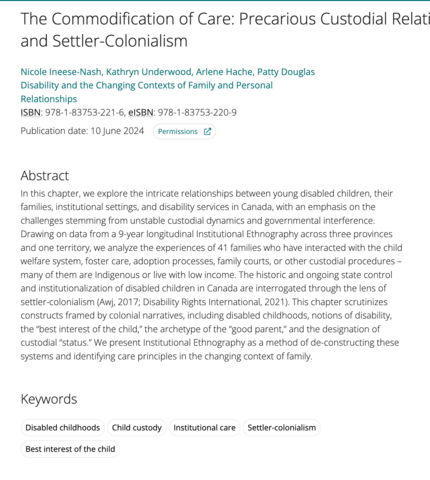In this chapter, the authors explore the intricate relationships between young disabled children, their families, institutional settings, and disability services in Canada, with an emphasis on the challenges stemming from unstable custodial dynamics and governmental interference.
Drawing on data from a 9-year longitudinal Institutional Ethnography across three provinces and one territory, they analyze the experiences of 41 families who have interacted with the child welfare system, foster care, adoption processes, family courts, or other custodial procedures – many of them are Indigenous or live with low income. The historic and ongoing state control and institutionalization of disabled children in Canada are interrogated through the lens of settler-colonialism (Awj, 2017; Disability Rights International, 2021).
This chapter scrutinizes constructs framed by colonial narratives, including disabled childhoods, notions of disability, the “best interest of the child,” the archetype of the “good parent,” and the designation of custodial “status.” The authors present Institutional Ethnography as a method of de-constructing these systems and identifying care principles in the changing context of family.

